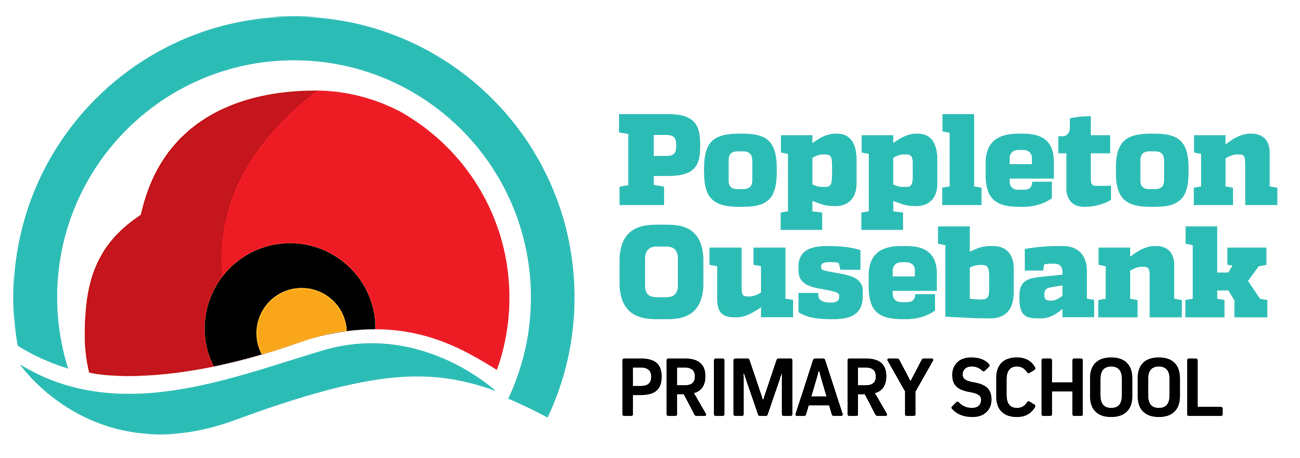Upper Poppleton
York YO26 6JT
English
By the end of their primary education, most pupils at Poppleton Ousebank Primary School are able to communicate, read and write fluently, with confidence, and in any subject. The strategies employed at POPS to teach Literacy are those based on research and linked to evidence based practice. Learning to read and write requires careful, deliberate and systematic sequencing of skills and knowledge to ensure that pupils’ learning builds on what has gone before.
When first starting school, we focus on the basic skills of speaking and listening, the recognition of letters and the sounds that they make (phonics) and the gross and fine motor skills, that will eventually enable a child to make marks with pens or pencils.
Learning to read and the importance of Phonics
Read Write Inc
At Poppleton Ousebank Primary School, we use the Read Write Inc (RWI) programme to get children off to a flying start with their literacy. RWI is a method of learning centred round letter sounds and phonics, and we use it to aid children in their reading and writing.
Using RWI, the children learn to read effortlessly so that they can put all their energy into comprehending what they read. It also allows them to spell so that they can concentrate on writing sentences.
When using RWI to read the children will:
- learn 44 sounds and the corresponding letter/letter groups using simple picture prompts
- learn to read words using Fred Talk
- read lively stories featuring words they have learned to sound out
- show that they comprehend the stories by answering questions.
When using RWI to write the children will:
- learn to write the letters/letter groups which represent 44 sounds.
- learn to write words by saying the sounds in Fred Talk
- write simple sentences
Being a fluent reader opens up a host of opportunities to our children. The more a child reads, the more able they will be to read more challenging material and have a greater depth to their learning.
In Early Years and Key Stage 1, pupils learn to read and write at the same time, using the Read Write Inc approach. Children focus on their use of phonics, their ability to write a sentence that makes sense, using capital letters and full stops. As children become increasingly confident, they begin to add adjectives to increase the detail, use questions and conjunctions. This is modelled in the stories that they read and so becomes an exciting next step.
Our children experience reading each day and we systematically help them to become a better reader with a passion for language and an excitement of books. Once pupils can read accurately and fluently, they move on from the RWI programme and the related decodable books.
Find out more about our Phonics programme here; Phonics
Teaching Reading and Writing – KS1 and KS2
Pupils receive Literacy Instruction enabling them to develop broader knowledge and skills of the English Language. Through discussion and reflection of more complex texts, children extend their ability to comprehend as a reader, but also begin to identify the skills as a writer, enabling them to focus on the writing process and writing skills in both literacy lessons and also across the curriculum. It is the use of phrases, vocabulary, sentence structure, spelling, grammar and punctuation that enables a child to be a successful writer. We recognise that the best writers also have a strong subject knowledge and for this reason, reading and writing is woven through our entire curriculum. Children learn authorial intent, recognise it in stories, extracts and in turn, deploy it in their own work.
Find out more about our Writing curriculum here; Writing Curriculum
Find out more about our Reading curriculum here; Reading Curriculum
Reading for pleasure
Reading for Pleasure remains a whole school priority. Reading enjoyment has been reported as more important for children’s educational success than their family’s socio-economic status (OECD, 2002). Our Reading for Pleasure culture is ‘lived’ by all members of staff as well as being embedded into the school structures and routines. It is everyone’s responsibility to promote and maintain enjoyment of reading.
Whole school story time takes place from 3:00 – 3:15pm every day. During this time teachers read to the children. When reading aloud, we do not stop unnecessarily to ask clarification/comprehension questions. Instead, we allow the story to weave its own magic, only pausing occasionally where necessary to define any important vocabulary. In Key Stage 1 teachers may read to children at other points during the day.
We encourage reading at home and support parents to understand how to read to/with their children. Teachers promote reading for pleasure through making recommendations. Scrap Books allow children to share their favourite books and include both fiction and non-fiction recommendations. Book corners are well used, with a mixture of decodable books (linked to their phonics) and also high quality texts that children are able to borrow and share with their family. All children have access to the class library and to the local library.
Spelling in Key Stage 2
At POPS, spelling lessons focus on teaching spelling patterns rather than memorising a list of words. This helps children to have a deeper understanding of the spelling patterns and rules so that they can apply their knowledge when spelling and reading unfamiliar words. Children have spelling lessons, each week, that build on the foundations of phonics knowledge children gain in their early years of education.
Children complete whole class, paired and independent activities to investigate spellings, as well as having the opportunity to practise these in class or at home, via online games. Spellings are taught through a series of investigations which include:
- Breaking words into syllables and phonemes
Syllable – a unit of pronunciation (always including a vowel)
dang/er/ous (3 syllables)
Phonemes – single sound (these could be made by 1 or more letters)
p o p u l a ti o n (7 phonemes)
- Morphology
The study of words, how they are formed and their relationship with other words in the same language, for example:
dis means the opposite disagree – not agree
Ology means the study of biology – study of science
- Etymology
Understanding the origin of the words and how the English language has, over time, borrowed and integrated words and spellings from a range of source languages.
Poppleton Reading List Year 2 Parents
Poppleton Reading List Year 3 Parents
Poppleton Reading list Year 4 Parents
Poppleton Reading List Year 5 parents
Poppleton Reading List Year 6 parents
Supporting reading websites
As parents, it’s often difficult to know which books your child may be interested in or who the current leading children’s authors are. For this reason, we have included some websites below, but you can also visit year group pages on this website to see the suggested reading lists for pupils.
A website to support book choices

